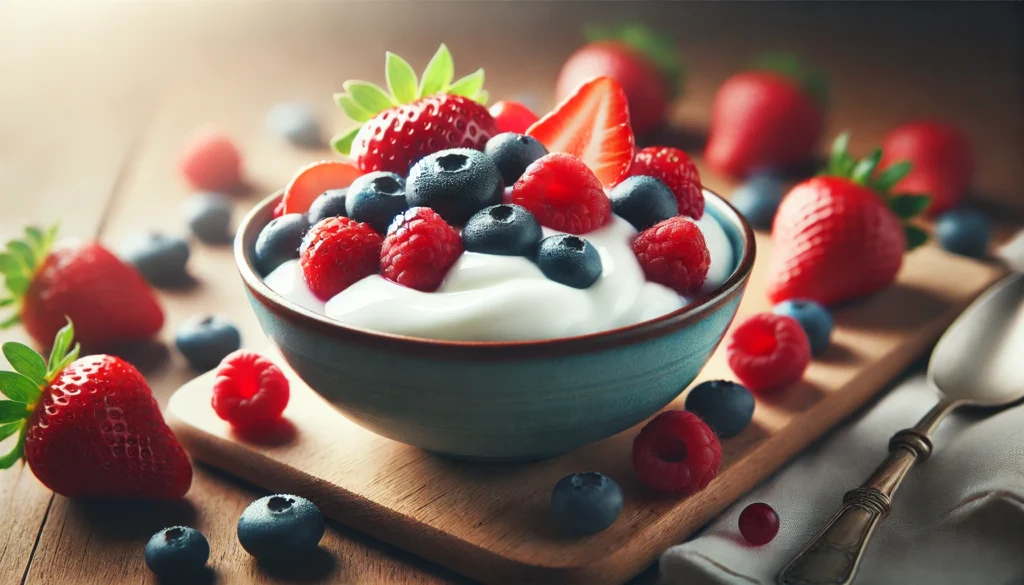Before we explore what to eat at night, it’s essential to understand why these cravings happen. Nighttime cravings can be attributed to several factors, including hormonal changes, emotional stress, or simply habitual late-night snacking. These cravings often lead to unhealthy eating choices, but with the right knowledge, you can make decisions that support your health.
Hormonal Fluctuations
Our bodies are governed by a complex interplay of hormones, and some of these can trigger nighttime hunger. Leptin and ghrelin are two hormones that regulate hunger and satiety. At night, leptin levels can drop, while ghrelin levels rise, making you feel hungrier. Understanding these hormonal shifts can help you plan your snacks strategically.
Emotional and Stress-Related Eating
Stress and emotions play a significant role in nighttime cravings. After a long day, emotional eating can become a comforting ritual. Stress increases cortisol levels, which can lead to cravings for high-fat, high-sugar foods. Developing stress-management techniques, such as meditation or yoga, can help curb these emotional eating habits.
The Habit of Late-Night Snacking
For some, nighttime cravings are simply a matter of habit. Over time, your body can become accustomed to expecting food at certain times, regardless of hunger. Breaking this cycle involves retraining your mind and body, which can start with gradually reducing portion sizes or substituting with healthier options.
You May Also Like: Essential Vitamins for Better Sleep Quality

Healthy Foods to Eat at Night
Choosing the right foods to eat at night can be the difference between a restful sleep and a night of tossing and turning. Let’s discuss some options that are both satisfying and beneficial for your body.
Greek Yogurt with Berries
Greek yogurt is an excellent option for a nighttime snack due to its high protein content. Protein helps keep you full longer, which can prevent additional snacking. Pairing it with berries adds a natural sweetness along with antioxidants, fiber, and vitamins. This combination is not only delicious but also supports muscle repair and digestion.
The Protein Power of Greek Yogurt
Greek yogurt is rich in casein protein, which digests slowly, providing a steady release of amino acids throughout the night. This slow digestion helps in muscle repair and growth, making it an ideal choice for those who are physically active.
Antioxidant Benefits of Berries
Berries are not just a sweet addition to your yogurt; they are packed with antioxidants like vitamin C and polyphenols. These compounds help combat oxidative stress and inflammation, contributing to overall health and wellness.
Enhancing Yogurt with Flavors
To add variety to your yogurt snack, consider mixing in different types of berries such as blueberries, strawberries, or raspberries. You can also sprinkle a bit of flaxseed or chia seeds for an extra boost of omega-3 fatty acids and fiber.
Almonds
Almonds are rich in magnesium, a mineral known to promote sleep by helping the body relax. They also contain healthy fats and protein, making them an excellent option for a nighttime snack. Consuming a small handful of almonds can help curb hunger while contributing to a good night’s rest.
Magnesium’s Role in Sleep
Magnesium plays a crucial role in regulating neurotransmitters that help calm the nervous system and prepare your body for sleep. A lack of magnesium can lead to insomnia, so incorporating almonds into your diet can help mitigate this risk.
Healthy Fats for Heart Health
Almonds are an excellent source of monounsaturated fats, which are heart-healthy fats that can lower bad cholesterol levels. Including almonds in your nighttime routine not only supports sleep but also contributes to cardiovascular health.
Portion Control and Almonds
While almonds are a healthy snack, they are calorie-dense. It’s important to stick to a small serving size, such as a handful, to avoid consuming excess calories that could lead to weight gain over time.
Oatmeal
Contrary to popular belief, oatmeal is not just for breakfast. A warm bowl of oatmeal can be incredibly soothing at night. It’s a source of complex carbohydrates, which can increase serotonin production in your brain, aiding relaxation and sleep. Opt for unsweetened oatmeal and add a touch of honey or fruit for natural sweetness.
Complex Carbohydrates and Serotonin
Oatmeal’s complex carbohydrates can help boost serotonin, a neurotransmitter that promotes relaxation. This can make oatmeal an excellent choice for those seeking a calming pre-sleep snack.
Customizing Your Oatmeal
Enhance your oatmeal with toppings like sliced bananas, nuts, or a sprinkle of cinnamon. These additions not only add flavor but also increase the nutritional value, providing a range of vitamins and minerals.
The Comfort of Warm Oatmeal
The warmth of oatmeal can be particularly comforting on a cold night. Its soothing properties can help ease you into a state of relaxation, making it easier to fall asleep peacefully.
Cottage Cheese
Cottage cheese is another high-protein food that can be beneficial as a nighttime snack. It contains casein, a slow-digesting protein that helps repair muscles and keeps you feeling full. Adding a sprinkle of cinnamon or some fresh fruit can enhance its flavor without adding unnecessary sugar.
Casein’s Benefits for Muscle Repair
The slow digestion of casein protein in cottage cheese provides a steady supply of amino acids, aiding muscle repair and growth during sleep. This makes it an ideal snack for athletes and active individuals.
Flavoring Cottage Cheese
To add variety to cottage cheese, consider mixing in fruits like pineapple or peaches. These fruits add a touch of sweetness and a refreshing flavor, enhancing your snacking experience.
Cottage Cheese and Satiety
Cottage cheese’s high protein content helps promote satiety, reducing the likelihood of waking up hungry in the middle of the night. This can contribute to a more restful sleep and improved overall health.
Dark Chocolate
For those with a sweet tooth, dark chocolate can be an excellent choice. Unlike milk chocolate, dark chocolate is lower in sugar and contains antioxidants known as flavonoids. These compounds can improve heart health and even boost your mood. However, moderation is key, so stick to a small piece or two.
Flavonoids and Heart Health
Dark chocolate is rich in flavonoids, which are antioxidants that have been shown to improve heart health by reducing blood pressure and improving blood flow. Incorporating small amounts into your diet can have long-term cardiovascular benefits.
Mood-Boosting Properties
The compounds in dark chocolate can also stimulate the production of endorphins, which are chemicals in the brain that create feelings of pleasure. This can help elevate your mood and reduce stress.
Practicing Moderation
While dark chocolate has health benefits, it’s important to consume it in moderation. A small piece or two is sufficient to enjoy its benefits without overindulging in calories or sugar.

Considerations for Nighttime Eating
When planning your nighttime snacks, it’s crucial to consider portion sizes and nutritional content. Overeating, even healthy foods, can lead to weight gain and disrupt sleep. Here are some additional tips:
Mindful Eating
Practice mindful eating by paying attention to your body’s hunger cues and savoring each bite. This approach can help you enjoy your food more and prevent overeating.
Identifying True Hunger
Mindful eating involves distinguishing between true hunger and cravings. Before reaching for a snack, take a moment to assess whether your body truly needs nourishment or if the desire to eat is driven by habit or emotion.
Savoring Each Bite
By slowing down and savoring each bite, you can enhance the eating experience and increase satisfaction. This mindfulness can prevent mindless munching and help control portion sizes.
Mindful Eating Techniques
Incorporate techniques such as deep breathing, setting down utensils between bites, and focusing on the flavors and textures of your food. These practices can enhance mindfulness and promote healthier eating habits.
Timing
Try to eat at least an hour before going to bed to give your body time to digest. Eating too close to bedtime can lead to discomfort and disrupt your sleep cycle.
The Impact of Late Eating
Consuming food too close to bedtime can lead to indigestion and discomfort, making it difficult to fall asleep. This can ultimately disrupt your sleep cycle and affect your overall health.
Establishing a Routine
Creating a consistent eating schedule can help regulate your body’s internal clock, making it easier to fall asleep and wake up at the same time each day. This routine supports better sleep hygiene.
Strategies for Early Eating
If you find yourself eating late regularly, consider strategies such as planning your meals ahead of time or setting reminders to encourage earlier eating habits. This can help you establish a healthier nighttime routine.
Hydration
Sometimes, what feels like hunger is actually thirst. Make sure you are adequately hydrated throughout the day to avoid mistaking thirst for hunger.
Recognizing Thirst vs. Hunger
Thirst and hunger can often be confused, leading to unnecessary snacking. Drinking a glass of water when you feel hungry can help determine if your body is actually in need of hydration.
The Role of Hydration in Sleep
Adequate hydration supports overall bodily functions, including sleep. Dehydration can lead to discomfort and restlessness, making it important to maintain proper hydration levels throughout the day.
Tips for Staying Hydrated
To stay hydrated, carry a water bottle with you, set hydration goals, and incorporate hydrating foods like fruits and vegetables into your diet. These practices can help you maintain optimal hydration levels.
Future Implications of Nighttime Eating Habits
As science continues to explore the connection between diet and sleep, the importance of what we consume at night becomes increasingly evident. Emerging research suggests that nighttime eating habits can impact circadian rhythms and metabolism, affecting overall health.
The Impact on Circadian Rhythms
Circadian rhythms regulate our sleep-wake cycles, and food intake can influence these rhythms. Late-night eating may disrupt these natural cycles, leading to sleep disturbances and metabolic issues. Understanding this relationship can guide healthier eating patterns.
Metabolic Health Considerations
Nighttime eating can affect metabolism, potentially leading to weight gain and insulin resistance. By choosing nutrient-dense foods and managing portion sizes, you can support metabolic health and reduce the risk of chronic diseases.
Future Dietary Recommendations
As research evolves, dietary guidelines may increasingly emphasize the timing of meals and snacks. Integrating these insights into your eating habits now can help you align with future recommendations for optimal health and well-being.

Conclusion
Choosing healthy foods to eat at night is not just about satisfying cravings but also about making choices that align with long-term health goals. By understanding the science behind these cravings and selecting nutrient-dense options, you can enjoy nighttime snacks without compromising your health.
The Role of Mindfulness in Nighttime Eating
Whether you’re a health and wellness coach, a science journalist, or a biohacker, the foods you choose to consume at night can significantly impact your well-being. As we continue to learn more about the interplay between diet, sleep, and overall health, it becomes clear that mindful nighttime eating is a practice worth adopting.
Embracing Nutrient-Dense Choices
By prioritizing nutrient-dense snacks, you not only satisfy your hunger but also support your body’s needs. Embrace the power of informed choices to enhance your health journey.
Building a Healthier Future
Adopting mindful nighttime eating habits today can pave the way for better health outcomes in the future. As research advances, staying informed and adaptable will empower you to make choices that promote lasting wellness.
Further Reading:
What To Eat at Night When You’re Trying To Lose Weight
15 Healthy Late Night Snacks that Won’t Disrupt Your Sleep
The Best Foods To Help You Sleep
Important Note: The information contained in this article is for general informational purposes only, and should not be construed as health or medical advice, nor is it intended to diagnose, prevent, treat, or cure any disease or health condition. Before embarking on any diet, fitness regimen, or program of nutritional supplementation, it is advisable to consult your healthcare professional in order to determine its safety and probable efficacy in terms of your individual state of health.
Regarding Nutritional Supplements Or Other Non-Prescription Health Products: If any nutritional supplements or other non-prescription health products are mentioned in the foregoing article, any claims or statements made about them have not been evaluated by the U.S. Food and Drug Administration, and such nutritional supplements or other health products are not intended to diagnose, treat, cure, or prevent any disease.


